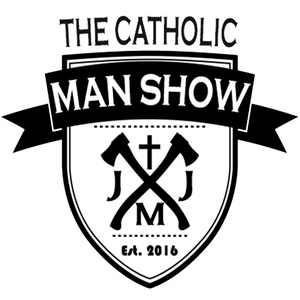Barbecue Judging, Scythe Harvesting, and Christian Marriage
BBQ Judging, Scythe Harvesting, and Christian MarriageBarbecue Competition Judging: Adam shares his first experience as a barbecue competition judge at a local Catholic church and school fundraiser in Tulsa, where he was joined by his son Jude (assistant judge) and two priests.Judged four categories: chicken, pulled pork, ribs, and brisket (Adam insists brisket is the primary measure; David (wrongly) argues for ribs).12 pit masters competed; judged on appearance, taste, tenderness, texture, uniqueness, and overall (max score 25).Advice from Joe Martin’s son: Take one bite per entry to avoid overeating (48 bites total across 40 minutes).Adam judged strictly (e.g., scores as low as 14, zero for appearance), while priests gave higher scores (23–24), highlighting differing standards.Event fostered camaraderie among pit masters (12 hours together) and service to attendees, teaching kids sacrifice, friendship, and craft articulation.Shout-out to Brian Schooley for organizing; Adam and David plan to enter as The Catholic Man Show next year, with Jim in a dunk tank.Main DiscussionWheat Harvest with a ScytheDavid’s Experience: David harvested two 45x45-foot wheat plots using a scythe, finding it soothing, peaceful, and in tune with nature despite being exhausting.Quotes Wendell Berry: “The means we use to do our work almost certainly affects the way we look at the world” (via an X account, @minahan8).Compared to last year’s sickle (felt “commie”), the scythe was efficient for small-scale farming; not practical for large-scale but satisfying.Kids raked straw (post-harvest, nutritionless due to seeding) for pig bedding or garden mulch; straw vs. hay explained (hay retains nutrition).Adam plans to borrow David’s scythe for his own wheat harvest, nervous about back strain.Wendell Berry Reflection: Hosts revisit Berry’s essays, appreciating his beautiful, idealistic conclusions but finding his reasoning insufficient (e.g., abandoning tractors would starve people).Compare Berry’s idealism to J.R.R. Tolkien and Guardini's Letters at Lake Como; both depict lovely worlds but lack practical solutions for modern challenges.Christian Marriage and Pope Leo XIIIIntroduction to Pope Leo XIII: Adam introduces Pope Leo XIII (1810–1903), a prophetic figure who addressed modernity’s challenges (secularism, communism, liberalism) in the late 19th century.Known for Rerum Novarum (1891, Catholic social teaching), reviving Thomism in seminaries (to counter Nietzsche, Hegel, and communism), and engaging modern society.His encyclical Arcanum Divinae Sapientiae (1880) emphasizes Christian marriage as a divine, not secular, institution, foundational to society.Critiqued rise of divorce, moral relativism, and civil interference undermining marriage’s sanctity; argued church, not state, holds primary authority over marriage.Marriage as Trinitarian Image: Marriage mirrors the Trinity’s relational society, where spousal love is so real it produces a third (child), reflecting Father, Son, and Holy Spirit.Secular view (Enlightenment-era and today) reduces marriage to a consensual contract, ignoring its sacramental, stable, and permanent nature.State has a role in regulating marriage per natural law, but church’s supernatural authority supersedes.Ephesians 5 and Mutual SubmissionScriptural Basis: Leo XIII references Ephesians 5 (footnoted), where St. Paul instructs mutual submission out of reverence for Christ, with specific roles: wives submit to husbands, husbands love wives as Christ loved the church.Secular society fixates on “wives submit,” ignoring mutual submission and...
